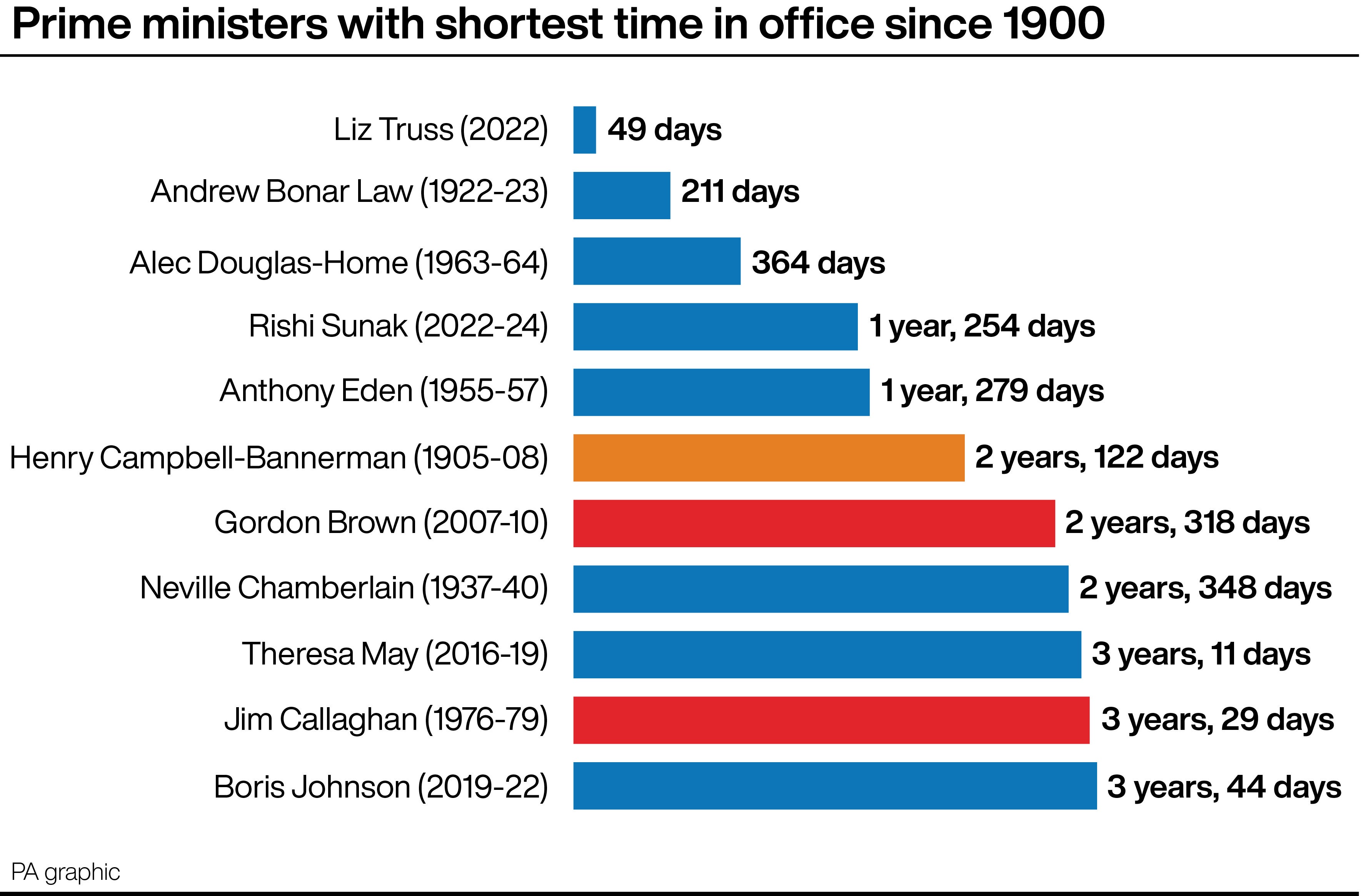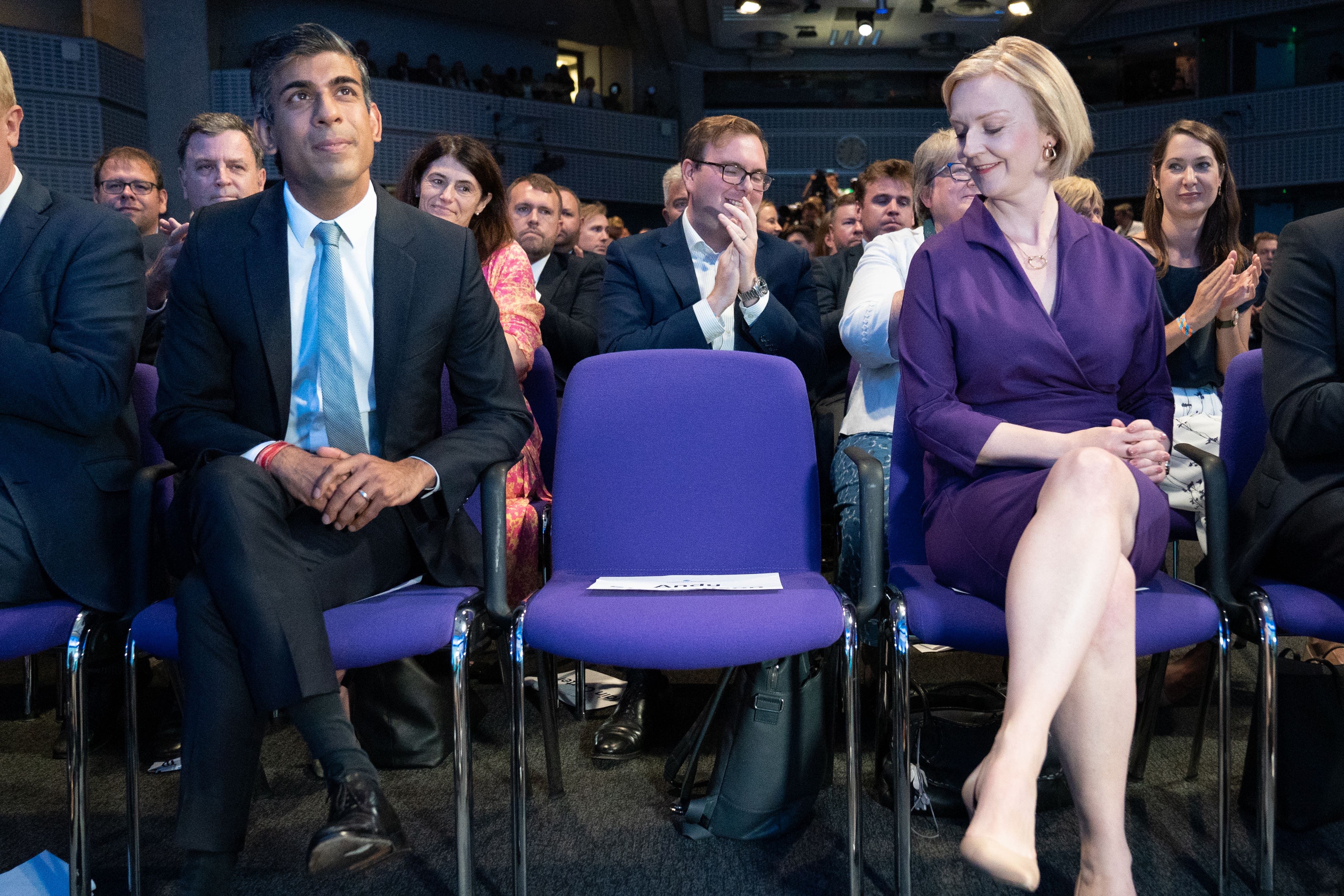Rishi Sunak’s rule is one of the shortest since 1900 – here’s who he beat
Rishi Sunak’s defeat means the UK will have its sixth prime minister in eight years

Rishi Sunak’s time as prime minister ranks as one of the shortest of its kind since the start of the 20th century.
Sunak was PM for one year and 254 days,
Only three prime ministers since 1900 had shorter spells in office: Sir Alec Douglas-Home, PM for 364 days from 1963-64 until losing a general election; Andrew Bonar Law, who clocked up 211 days from 1922-23 before resigning due to ill health; and Liz Truss, whose 49-day premiership in 2022 is also the shortest on record in British history.
Had Mr Sunak decided to carry on and not hold an election until he was required by law – which was January 2025 – he would have been guaranteed to overtake at least one more prime minister: Anthony Eden, who clocked up one year and 279 days in 1955-57.
Waiting until January 2025 would also have allowed Mr Sunak to pass his second anniversary as prime minister, which would have fallen on October 25 2024.

Even if he had then lost the election in January, history books would still have recorded his tenure as PM as lasting from 2022-25.
Mr Sunak’s defeat means the UK will have its sixth prime minister in eight years.
Since the summer of 2016, the country has seen the last weeks of David Cameron’s tenure as PM, the start and end of the premierships of Theresa May, Boris Johnson, Liz Truss and Rishi Sunak, and now the beginning of Sir Keir Starmer’s time in Downing Street.
The period from Mr Johnson’s departure in September 2022 to Sir Keir’s arrival in July 2024 is less than two years, representing a turnover of prime ministers that is unprecedented in modern political history.
To find a comparable period, it is necessary to go back around 100 years.

From summer 1922 to the end of 1924, four different people held the position of premier, all doing the job for the first time.
It began with David Lloyd George (Liberal), who was coming to the end of a long spell as prime minister; followed by Andrew Bonar Law (Conservative) whose tenure was cut short by illness; then Stanley Baldwin (Conservative) who lasted only a few months before failing to win a majority at a general election; and finally Ramsay MacDonald (Labour) who led a short-lived minority government.
By contrast, in the 28 years between 1979 and 2007, only three people held the top job: Margaret Thatcher, John Major and Tony Blair.
Bookmark popover
Removed from bookmarks